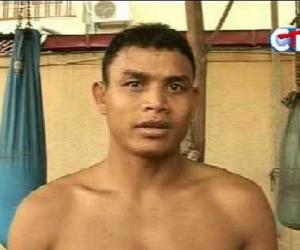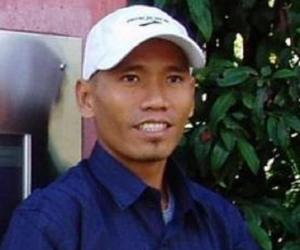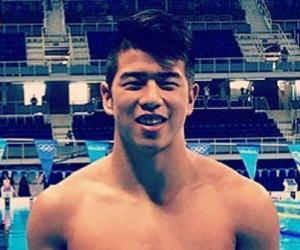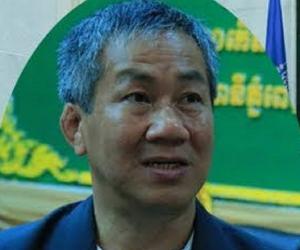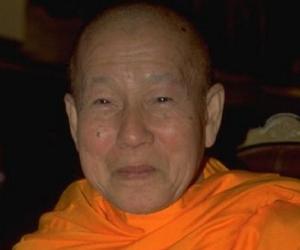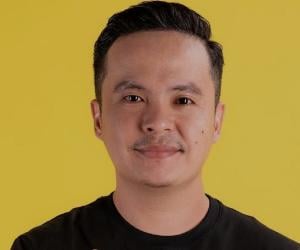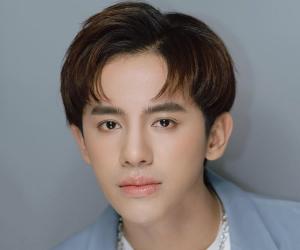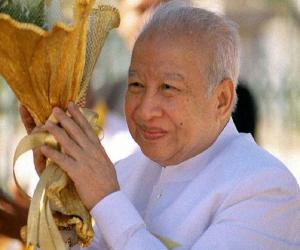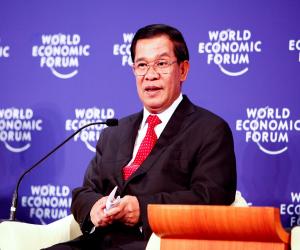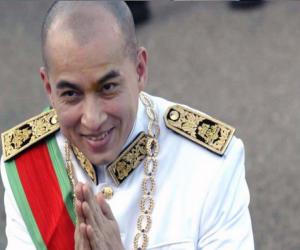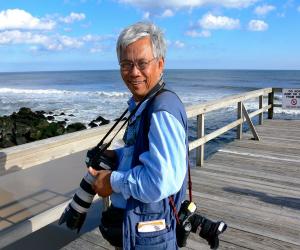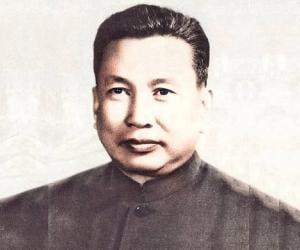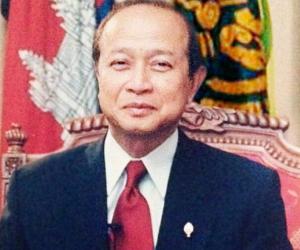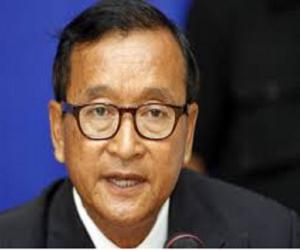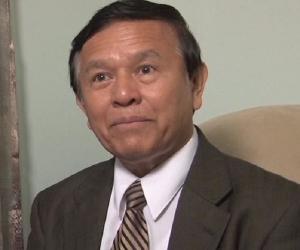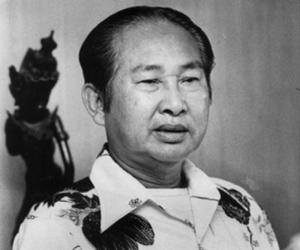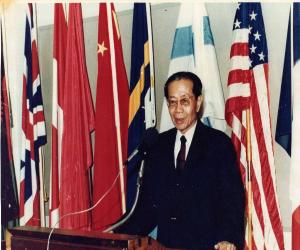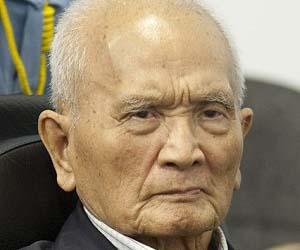Hun Sen is a Cambodian politician and the current prime minister of Cambodia. Having assumed office in 1985, Hun Sen is one of the world's longest-serving leaders and the longest-serving Cambodian head of government. Over the years, he has been accused of abusing power as a number of activists, environmentalists, and politicians have been arrested and murdered under his government.
Norodom Sihamoni has had an interesting childhood, from studying in Czechoslovakia to joining a film school in North Korea, to moving to China after the fall of Pol Pot. A skilled choreographer who had his own dance troupe in Paris, he later rather reluctantly became the king of Cambodia.
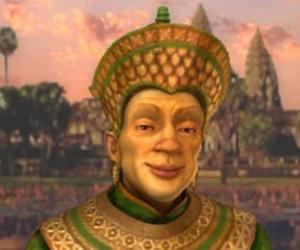
The ruler of the Khmer Empire, Suryavarman II is known to be the founder of the famed Angkor Wat in Cambodia. His rule extended from Thailand to Vietnam. He is believed to have died while on a military campaign against Champa,following which, Angkor was taken over by the Chams.
Pol Pot was a Cambodian politician who served as the prime minister of Democratic Kampuchea from 1975 and 1979. Widely considered a totalitarian dictator, Pol Pot was responsible for the Cambodian genocide, which resulted in the death of 1.5 to 2 million people. He was found guilty of crimes against humanity and placed under house arrest until his death.
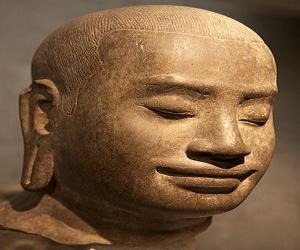
Khmer king Jayavarman VII, who embraced Buddhism, is best known for his initiatives in improving the infrastructure of Cambodia. Apart from building hospitals, he also built rest houses and highways but is best remembered for developing the temple at Bayon and the city of Angkor Thom.
Former Cambodian prime minister Norodom Ranariddh had started his career as a researcher and lecturer of law at the University of Provence in France. Son of former king, Sihanouk, he is credited with ushering in democracy in Cambodia and now leads the royalist party FUNCINPEC, as its president.
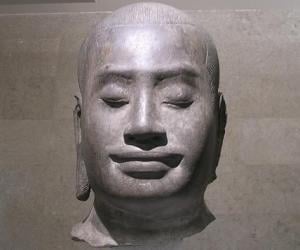
Khmer Ruler Jayavarman II is remembered for establishing the Devaraja cult as the official religion of his kingdom. He also expanded his kingdom to include Chenla. His origins were in Java, where he was to succeed as Java’s vassal in about 800, but he proclaimed Khmer independence soon after.
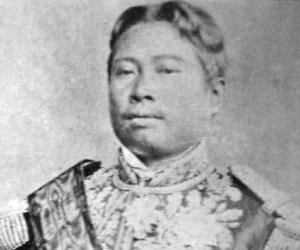
Cambodian ruler Norodom, the eldest son of King Ang Duong, was trained in the concepts of Buddhism from an early age. His initial goals included strengthening ties between Siam (Thailand) and Cambodia. A treaty he signed with France handed over Cambodia’s foreign relations to the French.
Sam Rainsy is a Cambodian politician, economist, and activist who served as the leader of the opposition from January 2015 to November 2015. He is credited with co-founding the Cambodia National Rescue Party, which was Cambodia's major political party from 2013 to 2017.
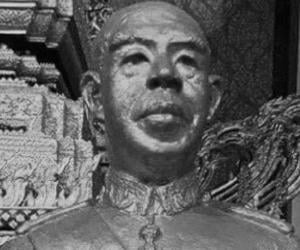
Norodom Suramarit reigned as the King of Cambodia from 1955 until his demise in 1960. He ascended the throne on his 60th birthday after his son King Norodom Sihanouk abdicated the throne in favor of his father. The current King Norodom Sihamoni is Suramarit's grandson.
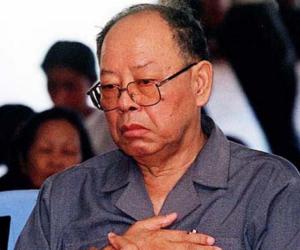
Son Sen was a Cambodian soldier and Communist politician. An important member of the Communist Party of Kampuchea aka the Khmer Rouge, Sen was accountable for the massacre of over 100,000 people in Cambodia's Eastern Zone in 1978. Son Sen is also remembered for his service as the Minister of National Defense from 15 January 1976 to 7 January 1979.
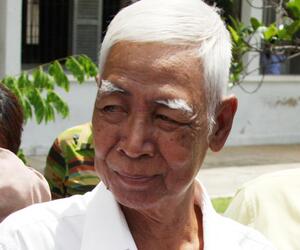
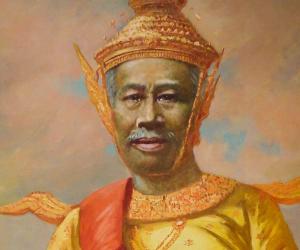
Cambodian king Sisowath is remembered as a titular head of the French colonial administration in Cambodia. He even went to France in 1906, to visit the Colonial Exhibition. He is said to have had 20 wives and 29 children, including Sisowath Monivong, who succeeded him.
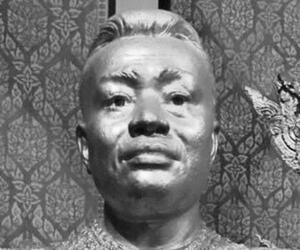
Ang Duong served as the King of Cambodia between 1840 and 1860. He is credited with establishing the basis for the united state of Cambodia as he made an attempt to form an alliance with colonial France, which also led to the French protectorate of Cambodia. He is credited with founding the two main houses of Cambodia, Sisowath and Norodom.
Kem Sokha is a Cambodian activist and politician. He is known for his service as the President of the Cambodia National Rescue Party. He also led the Human Rights Party, which he had founded, from 2007 to 2012. In 2017, Kem Sokha was arrested and imprisoned under allegations of treason. From 2018 to 2019, he was placed under house arrest.

Suryavarman I served as the king of the famous Khmer Empire between 1006 and 1050. An astute ruler, Suryavarman I maintained diplomatic relations with powerful kings like Rajendra Chola I, which helped him successfully defend his kingdom for about 40 years.
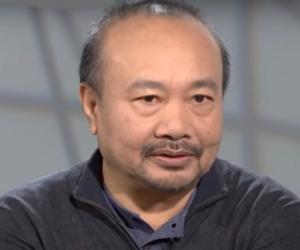
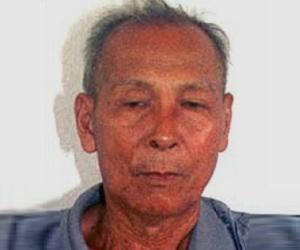
Ta Mok was a Cambodian soldier and military chief. He was one of the most important members of the Khmer Rouge. Nicknamed the Butcher, Ta Mok also led the national army of Democratic Kampuchea. He was captured by Cambodian government forces in March 1999 and was kept in government custody until his demise in 2006.
Lon Nol was a Cambodian general and politician. He served as the prime minister of Cambodia from 1966 to 1967 and again from 1969 to 1971. A nationalist, Nol played a decisive role during the 1970 Cambodian coup d'état where he led the military coup against Prince Norodom Sihanouk. The coup led to the abolition of the monarchy of Cambodia.

It is largely believed that Khmer ruler Indravarman I had snatched the throne away from his cousin, Jayavarman III. His reign saw the construction of a large reservoir, which later became the chief source of water for irrigation and other purposes in the Angkor region. He also built a temple at Bakong.

Ang Chan I was the King of Cambodia who reigned from 1516 until his death in 1566. He was coronated twice during his reign. Counted among the most distinguished kings of the post-Angkor era, Ang Chan I was one of the first Cambodian kings to use cannons and firearms in wars.
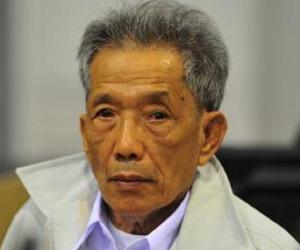
Khmer Rouge leader Kang Kek Iew headed the Cambodian government’s internal security branch and was in charge of the Tuol Sleng (S-21) prison camp. Charged with crimes against humanity, he was punished with 30 years of imprisonment, a sentence that was later extended to life imprisonment.

The son of Cambodian king Ang Eng, Ang Chan II, also known as Udaraja III, was recognized as a king by the Thais. He maintained good relations with both Vietnam and Siam, so that peace could be maintained in Cambodia. Following his death, both Vietnam and Siam took over control of Cambodia.
Son Sann was a Cambodian anti-communist resistance leader and politician. He is best remembered for his service as the Prime Minister of Cambodia from 1 May 1967 to 31 January 1968. Son Sann is also credited with forming a new political party called the Buddhist Liberal Democratic Party.

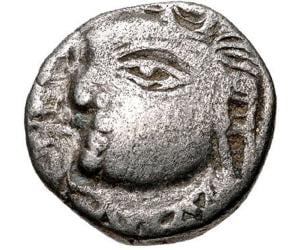
Isanavarman I served as the King of Chenla from 616 to 637 AD. The kingdom of Chenla went on to become the powerful Khmer Empire. King Isanavarman I is credited with founding the temples at Sambor Prei Kuk.

Photisarath reigned as the king of Lan Xang from 1520 to 1548. Counted among the most pious of the Lao kings, Photisarath played a key role in promoting Buddhism by destroying spirit shrines that enabled spirit worship. He banned spirit worship and animism and built Buddhist temples on the sites of spirit shrines.
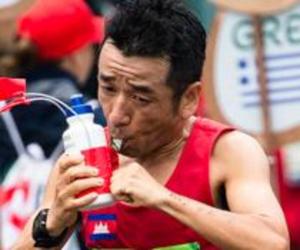
Nuon Chea was a Cambodian revolutionary and politician who served as the chief ideologist of the Khmer Rouge. From 27 September 1976 to 25 October 1976, he served as the prime minister of the Democratic Kampuchea. In 2014, he was convicted of crimes against humanity and was sentenced to life imprisonment. Nuon Chea died in 2019 while serving his sentence.
